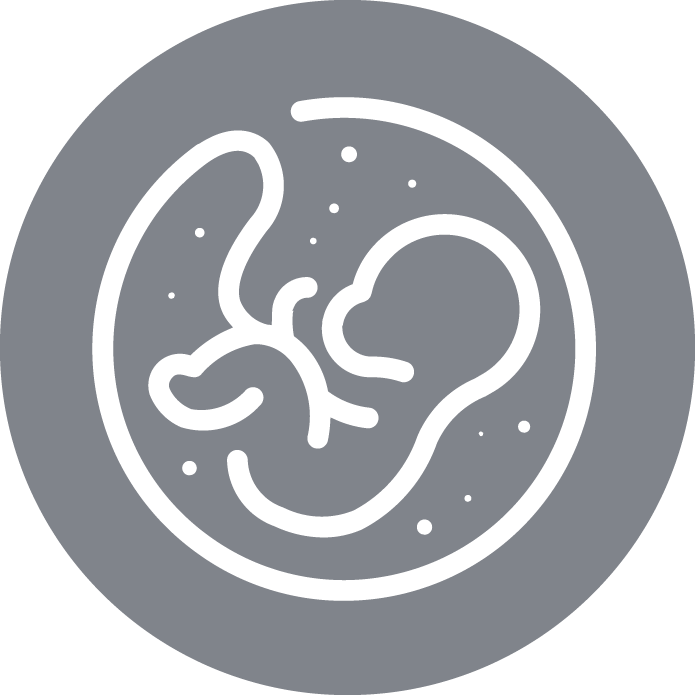"One of the biggest questions in reproductive medicine is how and when to preserve the fertility of transgender patients", Dr. Joana Peñarrubia
As the new transgender law comes into force, it grants transgender people the right to preserve their fertility before undergoing gender reassignment. This causes reproductive medicine specialists to raise questions regarding the multidisciplinary fertility approach for transgender people.
The medical recommendations to date, belonging to the American and European scientific societies, have developed their guidelines by incorporating patient histories and conducting fertility preservation starting at puberty and continuing until adulthood.
The I SEF Campus on fertility in transgender patients, held for the first time in Spain last March, was coordinated by Dr. Joana Peñarrubia, a gynecologist at IVIRMA and member of the SEF Endocrinology Interest Group. "Some of the questions about preservation that we ask ourselves within the medical community revolve around hormonal therapies. Do they really produce infertility in the long term or do they only prevent reproductive function during the treatment window? “asks the specialist. “We also wonder whether it is ideal to preserve ovarian cortex or oocytes at puberty or adolescence, given the aggressiveness of the former and the reduced fertility of oocytes until the age of 18," adds the doctor.
In search of a consensus on preservation
Held in Zaragoza, this first meeting on fertility in transgender patients brought together a total of 150 specialists in reproductive medicine. Participants heard from colleagues representing all the medical areas through which transgender patients pass, from pediatrics to endocrinology and even psychology.
The meeting's main discussion focused on fertility preservation. Although the scientific literature on fertility in transgender people is still quite scarce, it is suspected that hormone therapy is detrimental to fertility. Therefore, fertility preservation is necessary to ensure that reproductive cells do not lose their reproductive capacity. There is, however, a discrepancy between the right to perform gender reassertion early in adolescence and to ensure that preservation is effective for children and adolescents.
" The quality of eggs is low before the age of 18. We have known this for years based on international studies on reproductive capacity before and after this age. Therefore, preserving oocytes before the age of 18 may not guarantee the patient’s right to preserve their ability to conceive after gender reassertion. Ideally, this should be done from the age of 18 onwards," the specialists agreed. This is a subject of growing concern because it is a novelty in medical practice. The specialists are trying to establish protocols to comply with the transgender community, with the law and with their own medical work.
Reproductive capacity in adolescent patients is very limited. In addition to the fact that the oocytes do not mature optimally, they also produce a greater number of aneuploid embryos or embryos with chromosomal problems. "If we add to this situation the possibility of beginning hormone therapy at puberty to carry out the change, we may find ourselves with a reproductive problem, even in the offspring in the future. We also do not know how this therapy will affect both the future father and the future baby," said the specialists while discussing the topic of patient management.
Reproductive challenges for adolescent girls and transgender women
Although it is much easier for trans women to preserve their fertility from a medical point of view, "the reality is that many are reluctant to practice stimulation to obtain ejaculate and thus sperm. There is rejection of their physique by some people before they undergo gender reassertion," warned some specialists. For these cases, the medical community stressed the importance of treating each case on an individual basis, in order to assess whether sperm retrieval by testicular biopsy is necessary.
In any event, a major oversight detected and addressed during the campus is the stipulation that fertility preservation be for autologous use of gametes. This excludes from public health care the possibility for couples composed of CIS and Trans members to have shared parenthood, without the man having to gestate.
"The law has taken into account aspects that give transgender people more rights, but it has a number of important loopholes to ensure that, in addition to guaranteeing their fertility, these patients feel comfortable in their life processes after gender reassertion. There will be men who will not want to become pregnant, partly because they will have to stop their hormone therapy. Yet they will not have the possibility of carrying out in vitro fertilization with their eggs and transferring them to their partner's uterus in the public health system, as is currently done for lesbian couples in the private health system, using the ROPA method," the experts concluded.
Next steps in transgender fertility management
The SEF Campus for the multidisciplinary fertility management in transgender people was the first scientific meeting on the approach to fertility preservation in transgender patients in Spain. At the end of the event, its coordinator, Dr. Peñarrubia, emphasized "the need to develop a clinical guide, to establish a Multidisciplinary Unit for transgender patient management and thus be able to offer patients safe therapies and guarantee their reproductive rights".



